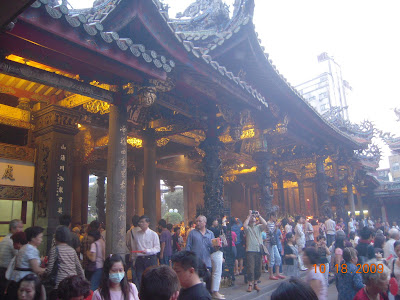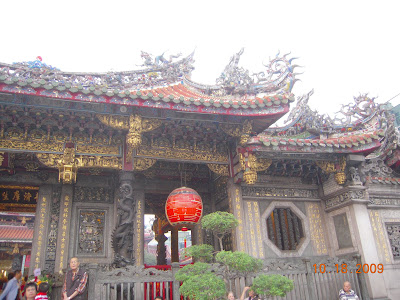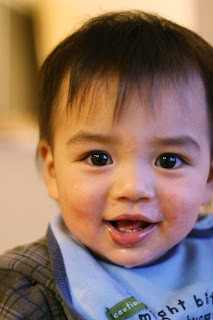Barack Obama's inaugural address in fullBarack Obama has been sworn in as the 44th US president. Here is his inauguration speech in full. My fellow citizens:
I stand here today humbled by the task before us, grateful for the trust you have bestowed, mindful of the sacrifices borne by our ancestors. I thank President Bush for his service to our nation, as well as the generosity and co-operation he has shown throughout this transition.
Forty-four Americans have now taken the presidential oath. The words have been spoken during rising tides of prosperity and the still waters of peace. Yet, every so often the oath is taken amidst gathering clouds and raging storms.
At these moments, America has carried on not simply because of the skill or vision of those in high office, but because we, the people, have remained faithful to the ideals of our forbears, and true to our founding documents.
So it has been. So it must be with this generation of Americans.
Serious challengesThat we are in the midst of crisis is now well understood. Our nation is at war, against a far-reaching network of violence and hatred. Our economy is badly weakened, a consequence of greed and irresponsibility on the part of some, but also our collective failure to make hard choices and prepare the nation for a new age. Homes have been lost; jobs shed; businesses shuttered. Our healthcare is too costly; our schools fail too many; and each day brings further evidence that the ways we use energy strengthen our adversaries and threaten our planet.
These are the indicators of crisis, subject to data and statistics. Less measurable but no less profound is a sapping of confidence across our land - a nagging fear that America's decline is inevitable, that the next generation must lower its sights.
Today I say to you that the challenges we face are real. They are serious and they are many. They will not be met easily or in a short span of time. But know this, America - they will be met.
On this day, we gather because we have chosen hope over fear, unity of purpose over conflict and discord.
On this day, we come to proclaim an end to the petty grievances and false promises, the recriminations and worn-out dogmas, that for far too long have strangled our politics.
Nation of 'risk-takers'We remain a young nation, but in the words of scripture, the time has come to set aside childish things. The time has come to reaffirm our enduring spirit; to choose our better history; to carry forward that precious gift, that noble idea, passed on from generation to generation: the God-given promise that all are equal, all are free, and all deserve a chance to pursue their full measure of happiness.
In reaffirming the greatness of our nation, we understand that greatness is never a given. It must be earned. Our journey has never been one of short-cuts or settling for less. It has not been the path for the faint-hearted - for those who prefer leisure over work, or seek only the pleasures of riches and fame. Rather, it has been the risk-takers, the doers, the makers of things - some celebrated but more often men and women obscure in their labour, who have carried us up the long, rugged path towards prosperity and freedom.
For us, they packed up their few worldly possessions and travelled across oceans in search of a new life.
For us, they toiled in sweatshops and settled the West; endured the lash of the whip and ploughed the hard earth.
For us, they fought and died, in places like Concord and Gettysburg; Normandy and Khe Sahn.
'Remaking America'Time and again these men and women struggled and sacrificed and worked till their hands were raw so that we might live a better life. They saw America as bigger than the sum of our individual ambitions; greater than all the differences of birth or wealth or faction.
This is the journey we continue today. We remain the most prosperous, powerful nation on Earth. Our workers are no less productive than when this crisis began. Our minds are no less inventive, our goods and services no less needed than they were last week or last month or last year. Our capacity remains undiminished. But our time of standing pat, of protecting narrow interests and putting off unpleasant decisions - that time has surely passed. Starting today, we must pick ourselves up, dust ourselves off, and begin again the work of remaking America.
For everywhere we look, there is work to be done. The state of our economy calls for action, bold and swift, and we will act - not only to create new jobs, but to lay a new foundation for growth. We will build the roads and bridges, the electric grids and digital lines that feed our commerce and bind us together. We will restore science to its rightful place, and wield technology's wonders to raise healthcare's quality and lower its cost. We will harness the sun and the winds and the soil to fuel our cars and run our factories. And we will transform our schools and colleges and universities to meet the demands of a new age. All this we can do. All this we will do.
Restoring trustNow, there are some who question the scale of our ambitions - who suggest that our system cannot tolerate too many big plans. Their memories are short. For they have forgotten what this country has already done; what free men and women can achieve when imagination is joined to common purpose, and necessity to courage.
What the cynics fail to understand is that the ground has shifted beneath them - that the stale political arguments that have consumed us for so long no longer apply.
The question we ask today is not whether our government is too big or too small, but whether it works - whether it helps families find jobs at a decent wage, care they can afford, a retirement that is dignified. Where the answer is yes, we intend to move forward. Where the answer is no, programmes will end. And those of us who manage the public's dollars will be held to account - to spend wisely, reform bad habits, and do our business in the light of day - because only then can we restore the vital trust between a people and their government.
Nor is the question before us whether the market is a force for good or ill. Its power to generate wealth and expand freedom is unmatched, but this crisis has reminded us that without a watchful eye, the market can spin out of control - that a nation cannot prosper long when it favours only the prosperous. The success of our economy has always depended not just on the size of our gross domestic product, but on the reach of our prosperity; on the ability to extend opportunity to every willing heart - not out of charity, but because it is the surest route to our common good.
'Ready to lead'As for our common defence, we reject as false the choice between our safety and our ideals. Our founding fathers, faced with perils that we can scarcely imagine, drafted a charter to assure the rule of law and the rights of man, a charter expanded by the blood of generations. Those ideals still light the world, and we will not give them up for expedience's sake. And so to all the other peoples and governments who are watching today, from the grandest capitals to the small village where my father was born: know that America is a friend of each nation and every man, woman, and child who seeks a future of peace and dignity, and we are ready to lead once more.
Recall that earlier generations faced down fascism and communism not just with missiles and tanks, but with the sturdy alliances and enduring convictions. They understood that our power alone cannot protect us, nor does it entitle us to do as we please. Instead, they knew that our power grows through its prudent use; our security emanates from the justness of our cause, the force of our example, the tempering qualities of humility and restraint.
We are the keepers of this legacy. Guided by these principles once more, we can meet those new threats that demand even greater effort - even greater co-operation and understanding between nations. We will begin to responsibly leave Iraq to its people, and forge a hard-earned peace in Afghanistan. With old friends and former foes, we will work tirelessly to lessen the nuclear threat, and roll back the spectre of a warming planet. We will not apologise for our way of life, nor will we waver in its defence, and for those who seek to advance their aims by inducing terror and slaughtering innocents, we say to you now that our spirit is stronger and cannot be broken; you cannot outlast us, and we will defeat you.
'Era of peace'For we know that our patchwork heritage is a strength, not a weakness. We are a nation of Christians and Muslims, Jews and Hindus - and non-believers. We are shaped by every language and culture, drawn from every end of this earth; and because we have tasted the bitter swill of civil war and segregation, and emerged from that dark chapter stronger and more united, we cannot help but believe that the old hatreds shall someday pass; that the lines of tribe shall soon dissolve; that as the world grows smaller, our common humanity shall reveal itself; and that America must play its role in ushering in a new era of peace.
To the Muslim world, we seek a new way forward, based on mutual interest and mutual respect. To those leaders around the globe who seek to sow conflict, or blame their society's ills on the West - know that your people will judge you on what you can build, not what you destroy. To those who cling to power through corruption and deceit and the silencing of dissent, know that you are on the wrong side of history; but that we will extend a hand if you are willing to unclench your fist.
To the people of poor nations, we pledge to work alongside you to make your farms flourish and let clean waters flow; to nourish starved bodies and feed hungry minds. And to those nations like ours that enjoy relative plenty, we say we can no longer afford indifference to the suffering outside our borders; nor can we consume the world's resources without regard to effect. For the world has changed, and we must change with it.
'Duties' As we consider the road that unfolds before us, we remember with humble gratitude those brave Americans who, at this very hour, patrol far-off deserts and distant mountains. They have something to tell us, just as the fallen heroes who lie in Arlington whisper through the ages. We honour them not only because they are the guardians of our liberty, but because they embody the spirit of service; a willingness to find meaning in something greater than themselves. And yet, at this moment - a moment that will define a generation - it is precisely this spirit that must inhabit us all.
For as much as government can do and must do, it is ultimately the faith and determination of the American people upon which this nation relies. It is the kindness to take in a stranger when the levees break, the selflessness of workers who would rather cut their hours than see a friend lose their job which sees us through our darkest hours. It is the firefighter's courage to storm a stairway filled with smoke, but also a parent's willingness to nurture a child, that finally decides our fate.
Our challenges may be new. The instruments with which we meet them may be new. But those values upon which our success depends - honesty and hard work, courage and fair play, tolerance and curiosity, loyalty and patriotism - these things are old. These things are true. They have been the quiet force of progress throughout our history. What is demanded then is a return to these truths.
What is required of us now is a new era of responsibility - a recognition, on the part of every American, that we have duties to ourselves, our nation, and the world, duties that we do not grudgingly accept but rather seize gladly, firm in the knowledge that there is nothing so satisfying to the spirit, so defining of our character, than giving our all to a difficult task.
'Gift of freedom'This is the price and the promise of citizenship.
This is the source of our confidence - the knowledge that God calls on us to shape an uncertain destiny.
This is the meaning of our liberty and our creed - why men and women and children of every race and every faith can join in celebration across this magnificent mall, and why a man whose father less than 60 years ago might not have been served at a local restaurant can now stand before you to take a most sacred oath.
So let us mark this day with remembrance, of who we are and how far we have travelled. In the year of America's birth, in the coldest of months, a small band of patriots huddled by dying campfires on the shores of an icy river. The capital was abandoned. The enemy was advancing. The snow was stained with blood. At a moment when the outcome of our revolution was most in doubt, the father of our nation ordered these words be read to the people:
"Let it be told to the future world... that in the depth of winter, when nothing but hope and virtue could survive... that the city and the country, alarmed at one common danger, came forth to meet [it]."
America. In the face of our common dangers, in this winter of our hardship, let us remember these timeless words. With hope and virtue, let us brave once more the icy currents, and endure what storms may come. Let it be said by our children's children that when we were tested we refused to let this journey end, that we did not turn back nor did we falter; and with eyes fixed on the horizon and God's grace upon us, we carried forth that great gift of freedom and delivered it safely to future generations.
Thank you. God bless you. And God bless the United States of America.
http://news.bbc.co.uk/1/hi/world/americas/obama_inauguration/7840646.stm歐巴馬就職演說全文
(法新社華盛頓20日電) 各位父老鄉親姊妹們:
今天我站在這裡,謙卑地面對眼前的重責大任,感念各位托付於我的信任,遙想先賢先烈的犧牲奉獻,我銘記於心。感謝布希總統對國家的服務,也謝謝他在交接過程中始終如一的寬厚與配合。
至今已有44位美國人發表總統就職誓詞,這些誓詞發表於繁榮與和平時期,但也有些是在烏雲密佈、暴風肆虐之際發表。美國人之所以可以在困頓時刻繼續向前,不只是因為高位者的能力或願景,也是因為人民相信前人理念、忠於建國法統。
我們是這樣走過來的,這一代的美國人也必須這樣走下去。
我們非常了解我國現在身處危機中心,對抗暴力與憎恨的戰爭尚未結束,某些人的貪婪與不負責任,導致經濟嚴重衰退,但這也是我們無法做出困難抉擇、讓國家準備好迎接新時代的後果。許多人失去家園、飯碗不保、公司關門;我們的健保費用太過昂貴、學校讓許多人失望;每天一再有證據顯示,我們使用能源的方式,使敵人壯大,讓地球受到威脅。
這些是根據數據與統計得出的危機指標,而比較無法測量、卻同樣嚴重的危機,就是國家上下信心流失,害怕美國國力必將衰退、下一代眼界變低的憂慮揮之不去。
今天我告訴各位,我們面對的是切切實實的挑戰,這些挑戰不只重大,而且將接踵而來。這些挑戰雖然無法在短時間內輕鬆解決,但美國人你們要知道,它們終將迎刃而解。
今天我們齊聚於此,因為我們選擇希望而非恐懼,選擇有決心的團結,而非衝突或歧異。
今天我們大聲宣告,那些無用的牢騷與虛偽的承諾已然告終,那些讓我們政壇窒息太久太久的交相指責與陳腐教條從此不再。
我們還是年輕的國家,但引用聖經的話語來說,擺脫幼稚行為的時刻到來了,重申我們堅忍精神的時刻到來了,選擇更好的歷史,發揚寶貴天賦,發揚代代相傳的高貴理想。上帝應許我們,人人平等,人人自由,人人都該有機會追求完完整整的幸福。
重申我國偉大的同時,我們了解到偉大絕非必然,偉大必須努力爭取。我們的旅程永遠不是抄捷徑、或是易於滿足而來;這條路從來就不是意志不堅、偏好享樂重於工作的人會選擇的旅程,也不是只求名利之樂之人會走的路;相反地,在這條漫長且充滿荊棘之路上帶領我們,一路邁向繁榮與自由的人,向來都是勇於冒險的行動派、真正成事之人,這之中有些人赫赫有名,但在工作崗位默默耕耘者更佔多數。
為了我們,他們帶著簡單的家當漂流萬里,追尋新生活。
為了我們,他們在剝削勞力的工廠裡苦幹實幹,定居西部,忍受鞭打,耕作於不毛之地。
為了我們,他們奮鬥不懈,葬身康科德(Concord)蓋茨堡(Gettsburg)、諾曼地(Normandy)、溪山(Khe Sahn)等等地方。
這些男男女女一再奮鬥犧牲,工作到雙手紅腫,為的是讓我們有機會過更好生活。他們認為美國的重要性,大於個人野心總和,也超越出身、財富或派系差異。
這是一條我們今天還在繼續的旅程,我們仍是世上最富足、最強大的國家,這場危機爆發時,我們的生產力沒少,我們的創造力依舊,我們的商品與服務,跟上星期、上個月或去年一樣受到需要;我們的能力沒有降低,但我們維護狹隘利益、抗拒令人不悅決定的時期必已過去,今天開始,我們需要重整精神、甩落塵埃,重新開始再造美國的工作。
環顧四周,許多工作尚待完成:現今的經濟狀況需要大膽且迅速的行動,我們也將有所動作,不只是創造新工作機會,也要為成長奠定新基礎;我們將造橋鋪路,設立符合商業需求、將我們連結在一起的電力網絡與數位線路;我們將使科學獲得應有的重視,運用科技奇蹟,提升健保品質、降低其費用;我們將運用太陽能、風力及土壤,提供汽車與工廠所需能源;我們也將讓學校與大專院校適應新時代轉型。這些我們都可以做,我們也將這麼做。
現在,有些人質疑我們企圖心的規模,他們認為,我們的體系無法負擔太多大型計畫,他們的記憶力不是很好,因為他們忘了國家過去的成就,忘了想像力與共同目標及必要勇氣相結合時,不受拘束的男男女女可以達成何種成就。
懷疑論者不了解,他們的立場已經站不住腳,政治爭論讓我們空轉太久,我們今天要問的,不是政府是不是太大或者太小,而是政府能否發揮作用,能否幫助家庭找到工資合理的工作、負擔得起醫療照顧、可以有尊嚴的退休。答案是肯定的道路,我們繼續前進;答案是否定的地方,計畫就將結束。
我們使用公共資金的人會擔負責任,明智地花費、革除壞習慣、盡心盡力,因為唯有如此,才能讓人民與政府間重拾重要的信賴。
橫在前方的問題,也並非市場力量是善是惡,市場創造財富、擴大自由的力量無可比擬,但這場危機提醒了我們,市場沒有監督就會如脫韁野馬,而且國家如果只重視有錢人,繁榮就無法持續下去;我們經濟的成功,取決的不只是國內生產毛額大小,還端視富裕可及之範圍,取決於我們能讓每顆積極肯做的心獲得機會的能力,這樣不是在做善事,而是因為,這是我們最有把握能達到共同利益之路。
至於我們共同的防衛,我們認為必須在安全及理想中做選擇是錯誤的。我們建國的諸位國父,面對我們幾乎無法想像的危難,擬定確保法治與人權的憲章,並由一代一代的鮮血加以擴充。這些理想依然照亮全世界,我們不會為了權宜之計而放棄這些理想。同樣的,所有其他觀看這項就職典禮的各個民族及各國政府、從大首都到我父親出生的小鄉村,我要向他們說:「凡是追求和平及有尊嚴未來的國家、男男女女及兒童,美國是你們的朋友,我們已經準備好再次領導這個世界。」
回想之前數個世代對抗法西斯主義及共產主義,倚靠的不只是飛彈及坦克,還有堅強的盟邦與不朽的信念。他們了解單靠自身的力量無法保護我們自己,我們也不能因此為所欲為。相反的,他們了解到,我們的力量因為謹慎的使用而增強;我們的安全源自於我們動機正當、身為楷模的力量、以及謙虛與自制混合起來的特質。
我們是這項遺產的保護者。再一次在這些原則的引導下,我們能夠對付需要更多努力的新威脅,這些努力包括加強國家間合作以及了解。我們將開始以負責任的方式將伊拉克交還給它的人民,並在阿富汗建立得來不易的和平。我們將與老朋友與舊敵人攜手,努力不懈地降低核子威脅,並擊退地球暖化的幽靈。我們不會為自己的生活方式道歉,也會毫不猶豫的維護這種生活方式,對那些把引發恐怖並屠殺無辜做為手段,推動他們目的的人,我現在告訴你們,我們的意志力強過你們,且堅不可摧;你們不可能比我們長久,我們將打敗你們。
因為我們知道,我們融合得來的遺產是種力量,不是缺點。我們是基督徒及穆斯林、猶太教徒與印度教徒─及沒有信仰的人所組成的國家。我們是由地球各個角落各種語言及文化形塑出來的國家;且因為我們曾嚐過內戰及種族隔離的痛苦洗禮、走出黑暗時代而變得更強壯且更團結,我們不得不相信仇恨總有一天會過去;部落之間的界線很快就會消失;當世界越變越小,我們做為人類的共同特質也將不言自明;美國必須扮演引進新和平時代的角色。
有關穆斯林世界方面,我們將根據互利與互重,尋求新的前進方式。我要告訴那些在全球各地散播衝突種子或將他們自己社會弊病歸咎於西方國家的領袖,你們要知道,你們的人民是以你能建立什麼,而非破壞什麼來評斷你。對於那些利用貪污及欺騙、消滅異己以緊抓權力的人,你們要知道,你們站在歷史錯誤的那一邊;但是如果你願意鬆開拳頭,我們將伸出援手。
對貧窮國家的人民,我們誓言與你們一起讓你們的農場豐收並讓清澈的水流動;滋養飢餓的身體並餵飽飢餓的心靈。對那些與我們一樣、享受相對富足生活的國家,我們無法再對國境之外的苦難視而不見;我們也不能再不計後果地消耗地球資源。因為這個世界已經改變,我們必須與這個世界一起改變。
當我們思索眼前開展的道路,我們謙卑感激地記起在此刻巡邏偏遠沙漠及山區的勇敢美國人。如同長眠阿靈頓公墓的英雄穿透世世代代的低語,他們今天有話告訴我們。我們尊敬他們,不僅是他們正在守護我們的自由,而是他們體現服務的精神;一種希望在比他們自己更重要的事物中,尋找到意義的意願。然而,在這個能為一個世代立下定義的時刻,必須常駐我們所有人心中的正是這種精神。
就算政府能做且必須做,這個國家所能倚仗的終究是美國人民的信念與決心。仁慈讓我們在堤防潰決時,收容陌生人,是勞工朋友的無私,希望減少自己的工作時數,也不願見到朋友失業,讓我們度過黑暗時代。是消防人員的勇氣,讓他衝進煙霧瀰漫的樓梯間,同樣的,是父母培育孩子的意願,最終決定我們的命運。
我們面臨的可能是全新的挑戰。我們對付它們的工具可能也是全新的。但是那些我們成就所倚仗的價值─努力工作與誠實、勇氣與公平競爭、容忍與好奇心、忠誠與愛國主義─都是固有的價值觀。這些價值觀都是正確的。它們曾經是推動美國各段歷史前進的沉默力量。現在要求我們的是新時代的責任--每一位美國人都要體認到我們對自己、我們的國家以及這個世界有責任,並非不情不願,而是欣然接受的責任,而是堅信沒有什麼比全力解決艱難任務,更能獲得精神上的滿足,更能找到自我。
這是公民的代價與承諾。
這是我們信心的來源─明白上帝在召喚我們形塑尚未確定的命運。
這是我們自由與信念的意義所在─為何不同種族與宗教的男男女女與小孩能在這片大廣場上一起慶祝,為什麼一個人的父親在不到60年前可能還被拒絕進當地餐廳用餐,現在卻能站在你們面前宣讀最神聖的誓言。
讓我們記住這一天,記住我們是誰、我們經歷的有多少。在美國誕生的那一年,在最寒冷的幾個月,一小群愛國者在冰凍的河水岸邊擁抱即將熄滅的營火。棄守首府。敵人正在逼進。白雪上血紅斑斑。我們革命成果最受質疑的時刻,我們的建國國父下令向人民宣讀以下這段話:
「讓這段故事流傳後世,在隆冬時候,當希望與美德之外,無所倖存之時,這座城市與這個國家,因為一個共同的危險起而警戒,站出來迎向它。」
美國。在面對我們共同的危險時、在這個苦難的冬天、讓我們記住這些不朽的話語。藉由希望與美德,讓我們再次勇敢面對逆境,忍受可能到來的風暴。讓我們孩子的孩子傳述下去,當我們遭遇考驗,我們拒絕讓這趟旅程結束,我們不回頭也不躊躇退卻,將眼光放在未來,上帝的恩典降臨我們身上,我們帶著自由這份偉大的禮物,安全地將它送給未來的世代。http://tw.news.yahoo.com/article/url/d/a/090121/19/1dcnu.html







